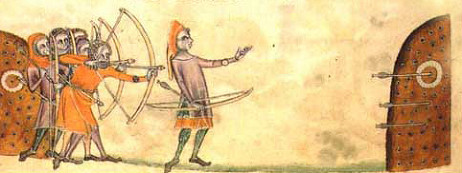Peer Review

"Peer review" is a key term to know when looking for scholarly sources: If a journal is "Peer reviewed," that means the articles published in that journal were reviewed by an anonymous panel of other scholars, and the panel objectively verified the high level of scholarship in the article.
Peer-reviewed journals are an excellent source for scholarly research articles. If you'd like to learn more, please see our Peer Review guide, which explains why peer review is important and where you can find peer-reviewed articles.
CITES VPN
 To access Library electronic resources from off-campus, connect through the campus VPN. Follow the instructions on this page: http://techservices.illinois.edu/services/virtual-private-networking-vpn. Make sure to select TUNNEL ALL and not Split Tunnel.
To access Library electronic resources from off-campus, connect through the campus VPN. Follow the instructions on this page: http://techservices.illinois.edu/services/virtual-private-networking-vpn. Make sure to select TUNNEL ALL and not Split Tunnel.
Please note that when searching Google for scholarly materials from you personal computer, you will need to go through the VPN in order to access article and books.
Library Easy Search
 Please keep in mind that the Library Easy Search is best used to search for known items and not for beginning a research project. Not all Medieval and Renaissance studies databases are part of Easy Search.
Please keep in mind that the Library Easy Search is best used to search for known items and not for beginning a research project. Not all Medieval and Renaissance studies databases are part of Easy Search.
What Is a Scholarly Source?

Scholarly sources are works that contain well-sourced, original research and meet the established standards of their discipline. Generally, these sources:
- do not duplicate work that has already been done by other scholars
- present a worthwhile approach to the topic
- exist as part of a standing conversation on the topic, as represented by its citations to other scholarship
- meet the above and other standards of the discipline, as generally agreed upon by scholars of the discipline
Scholarly sources can appear in a variety of formats, but most often you will find them as books, book chapters, and journal articles.
What's wrong with Google?
Google returns results on the basis of popularity. While popular beliefs are sometimes correct, we can all think of many instances when they are not correct. Since the internet itself -- the source of all of Google's results -- includes all sorts of misinformation, one cannot be certain that results returned from Google are absolutely reliable.
Google is fine for our everyday use: In everyday life, we often use Google to find generally agreed upon facts about a topic. But generally agreed upon topics aren't the focus of academic scholarship: scholars make arguments that often challenge presupposed facts, and need extremely reliable sources to strengthen their arguments. But all too often, the sources produced by Google do not provide enough evidence to verify the reliability of the information and facts they publish.
Also, academic articles often will not to appear on websites searched by Google, because they are stored in subscription-only databases that provide limited access. Google Scholar (a *different* search engine) will find some articles, but it's best to talk with your professor or librarian about what sources to use.
Ultimately for your papers and projects, it is best to use books, journal articles, reports, and other information sources (print and electronic) that are written and published by verified experts in the "peer review system." For more information on academic standards and "peer review," read our Peer Review guide.
Citing Sources and Citation Management
 Properly citing sources is part of research. The Library has an excellent guide for Citing Sources. The Library has guides to popular citation management systems:
Properly citing sources is part of research. The Library has an excellent guide for Citing Sources. The Library has guides to popular citation management systems: